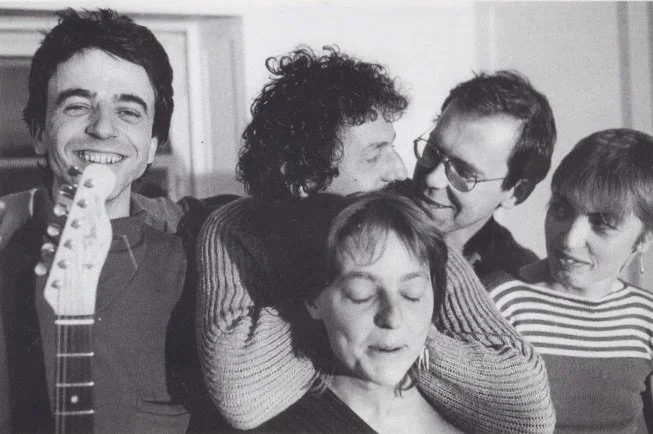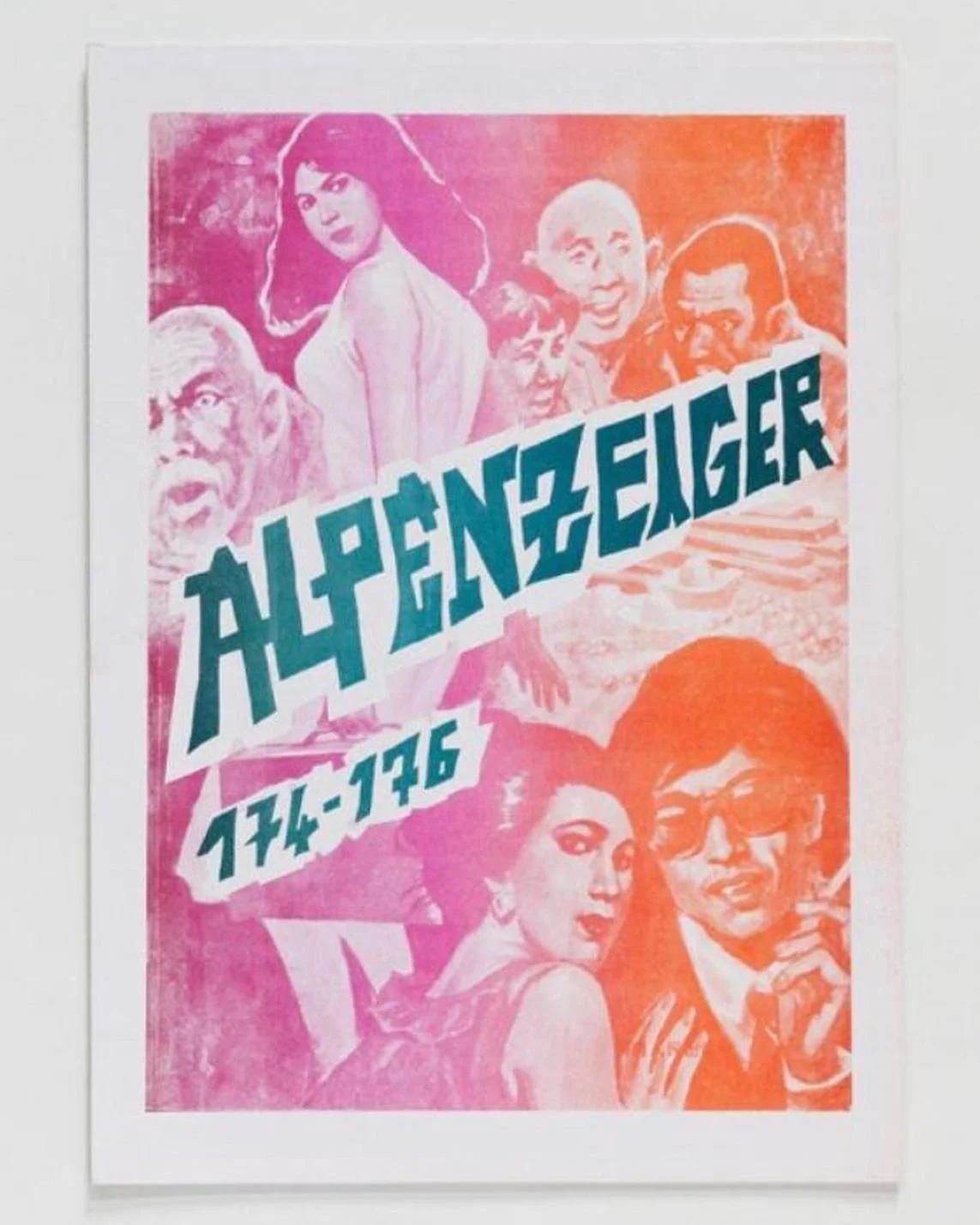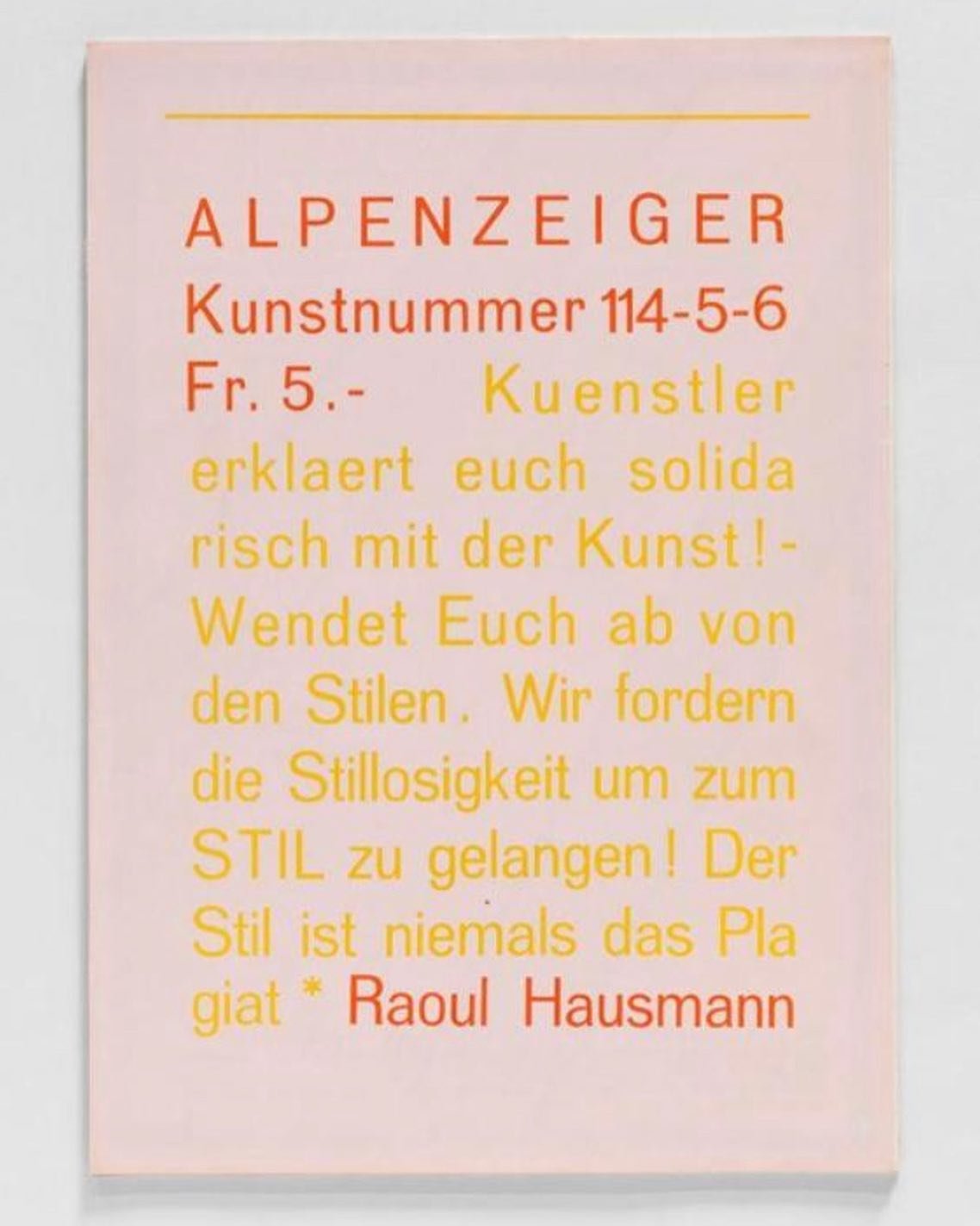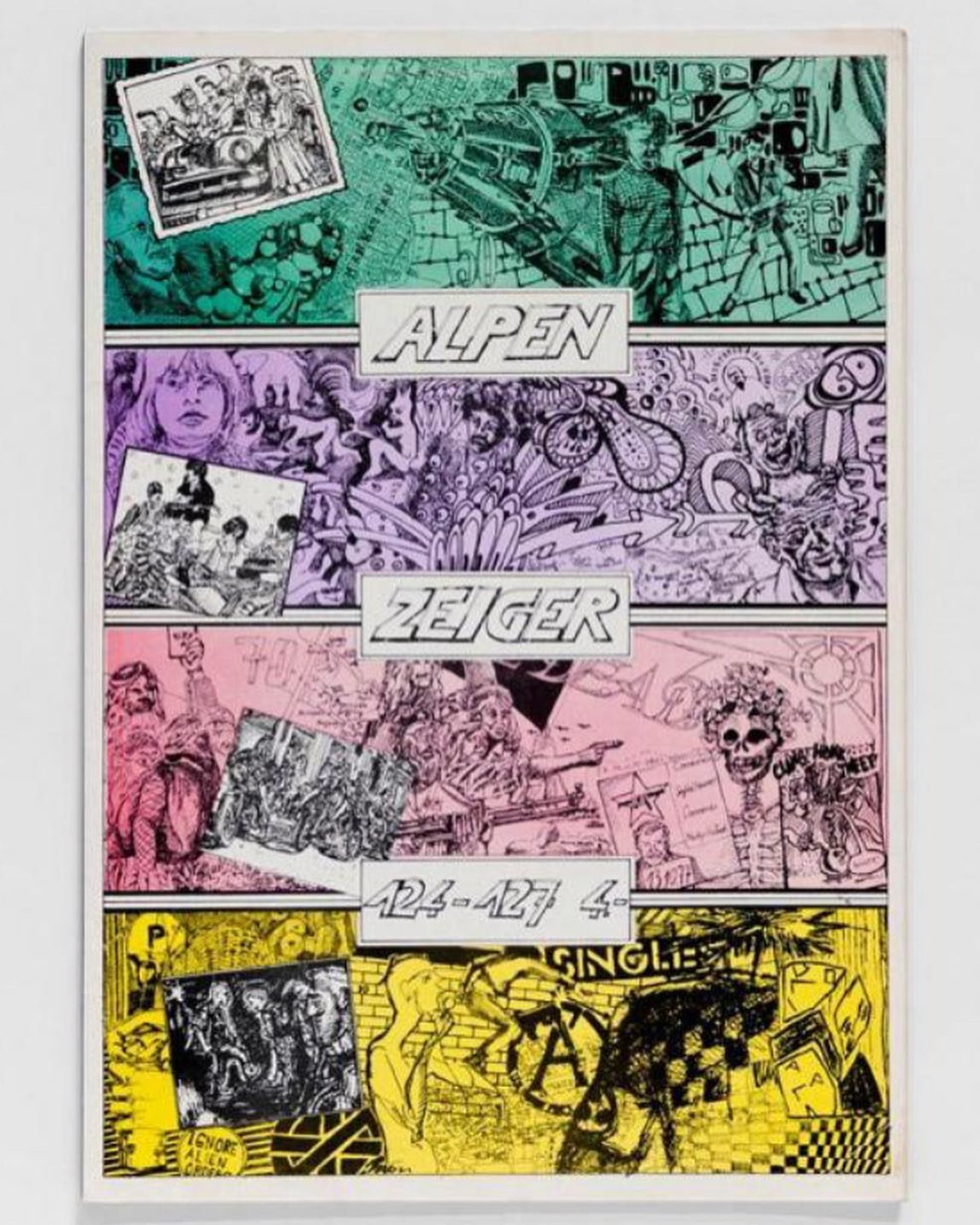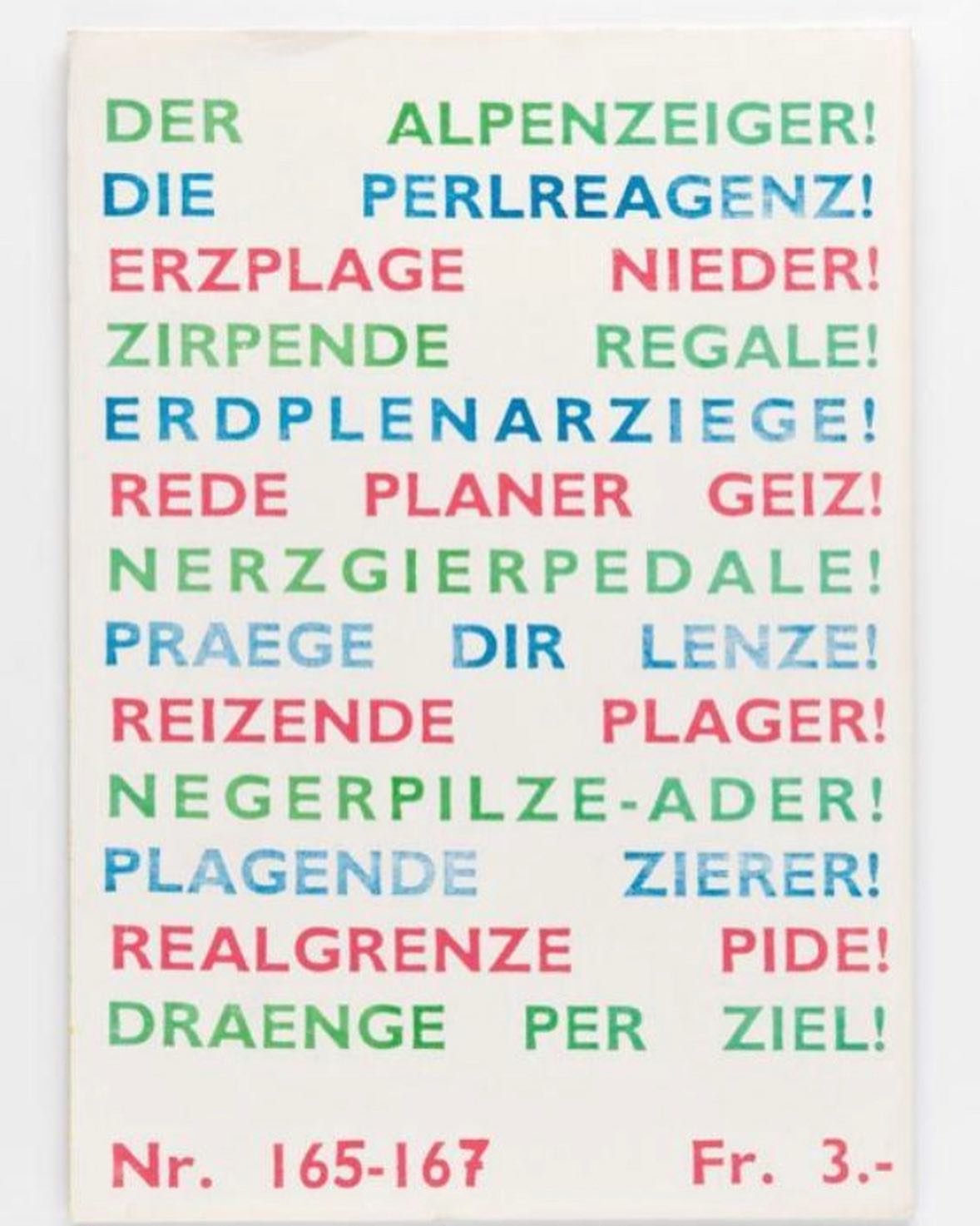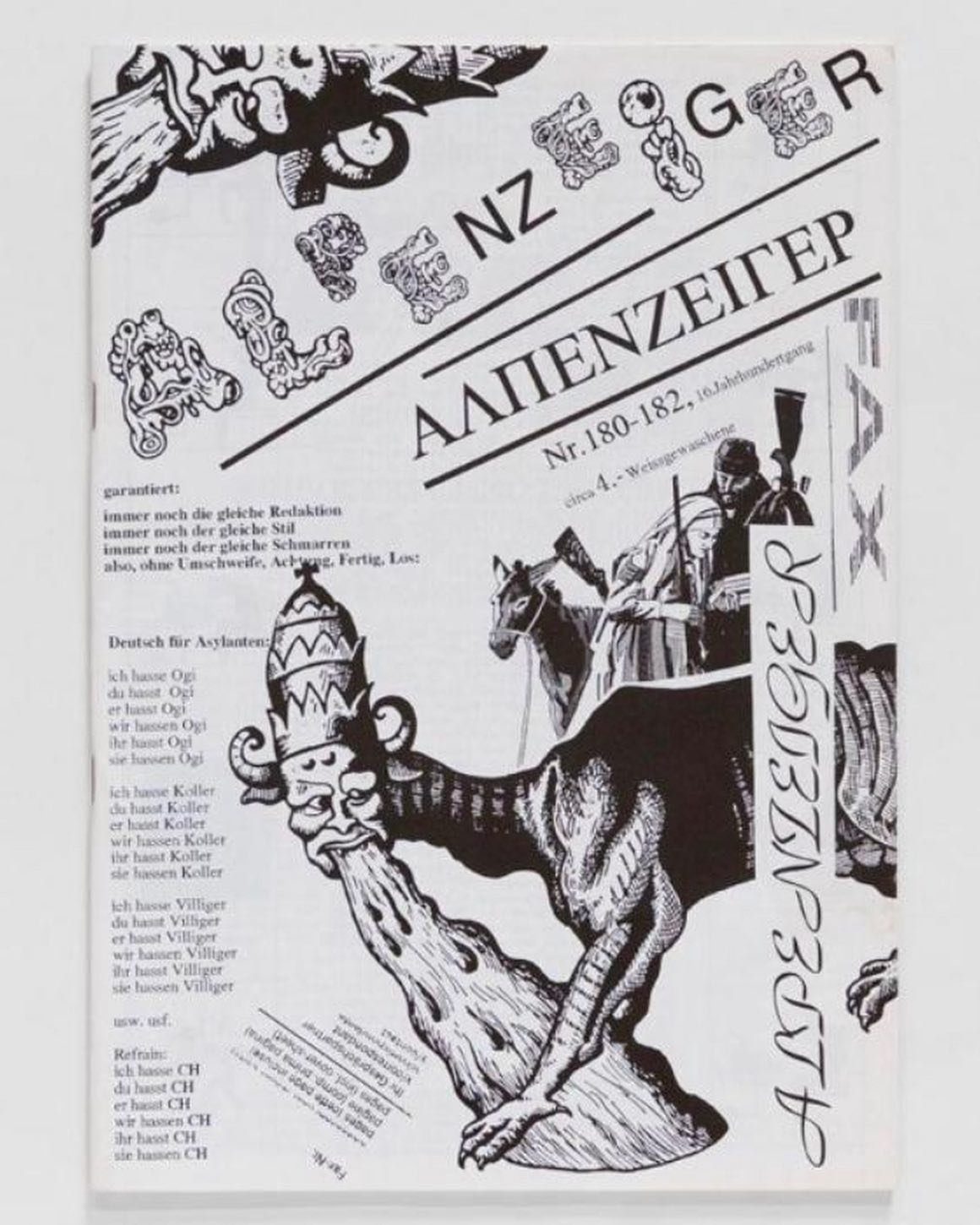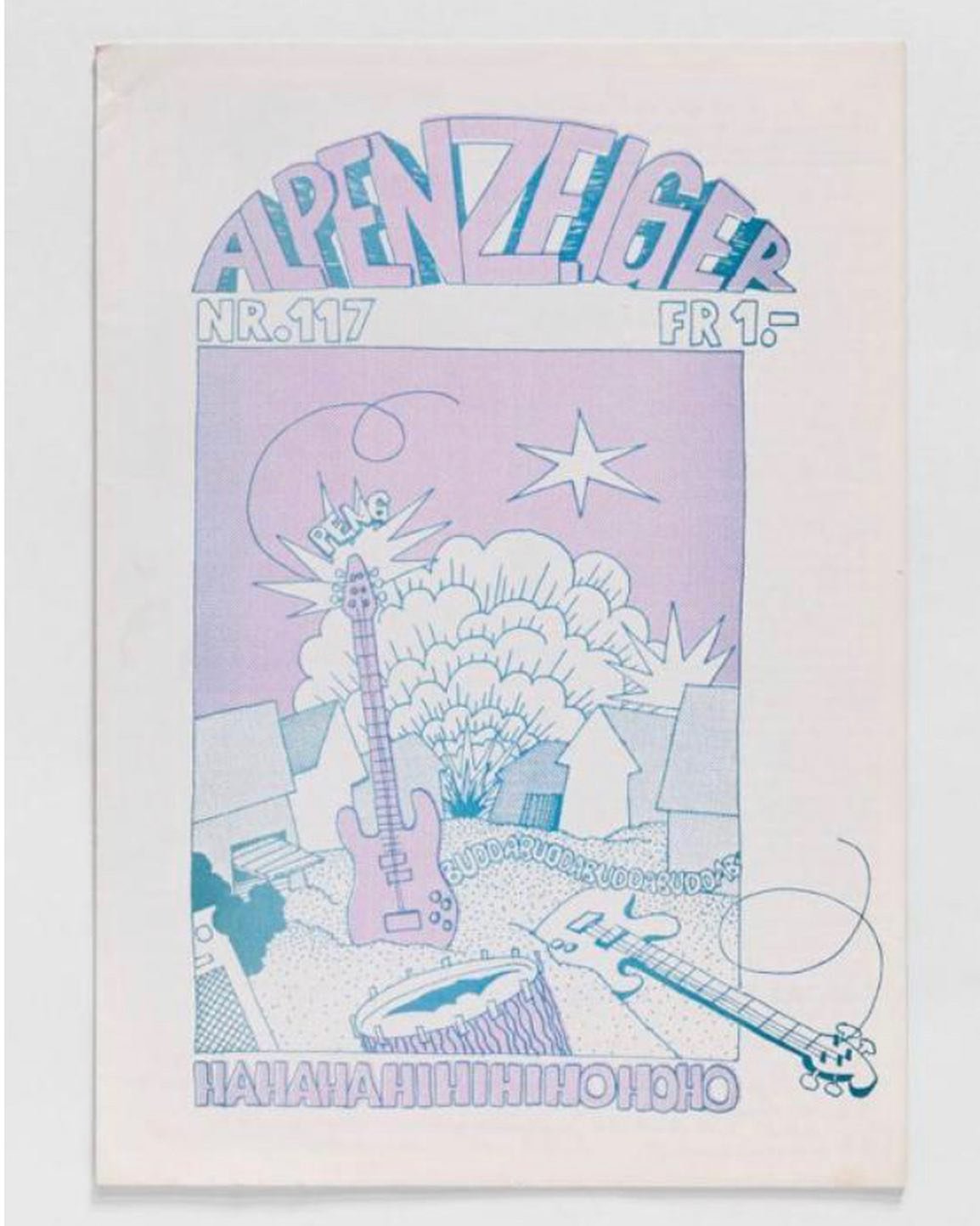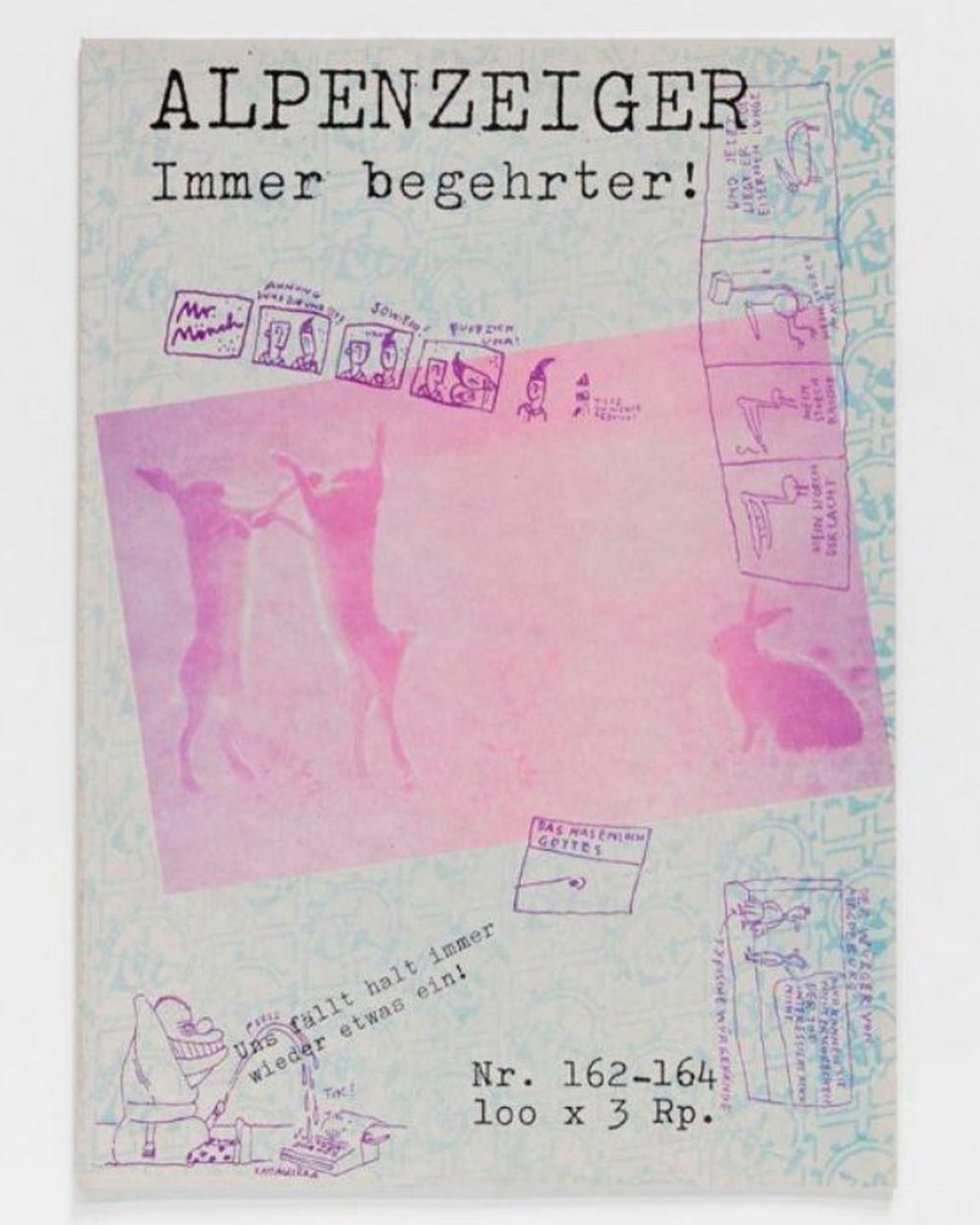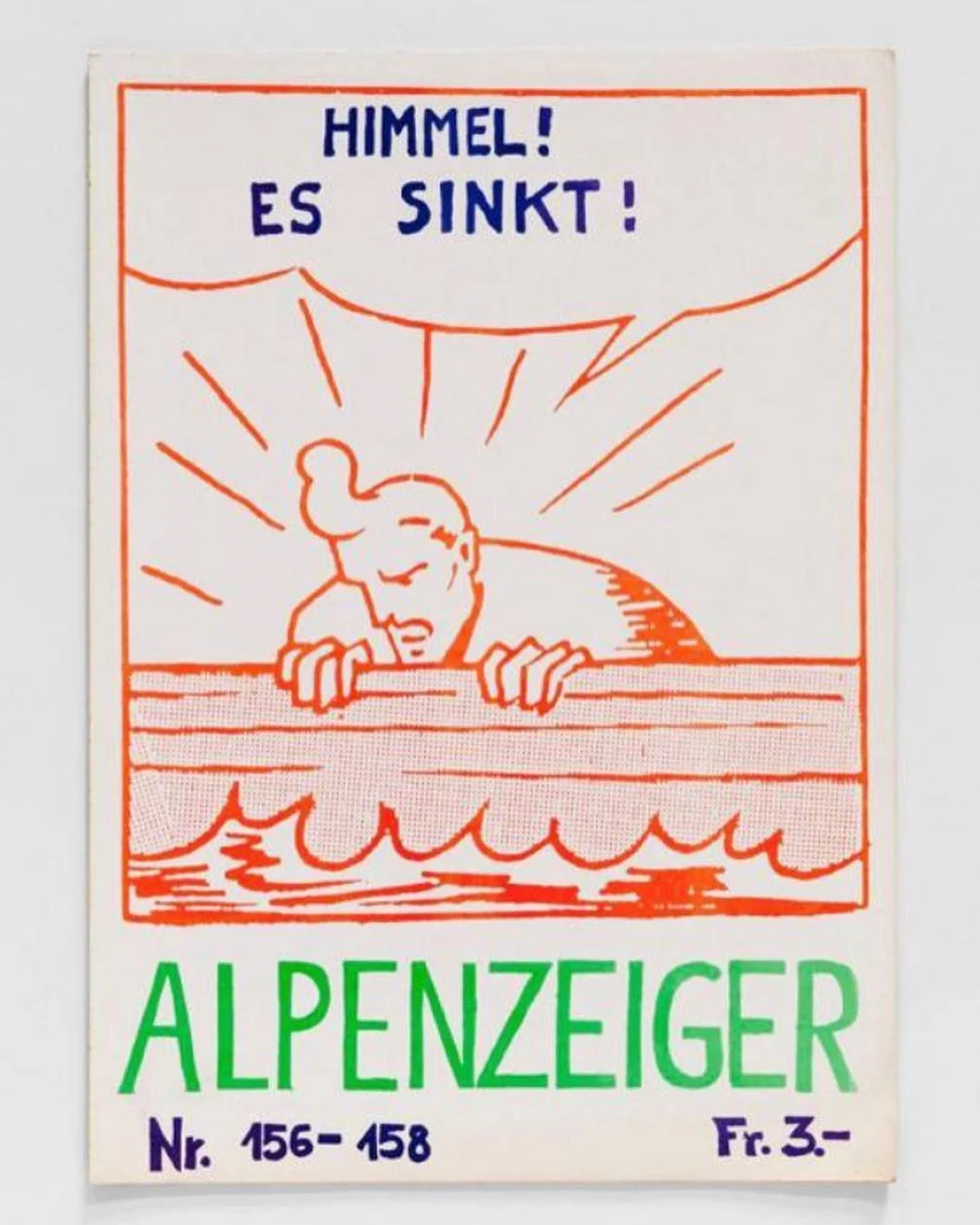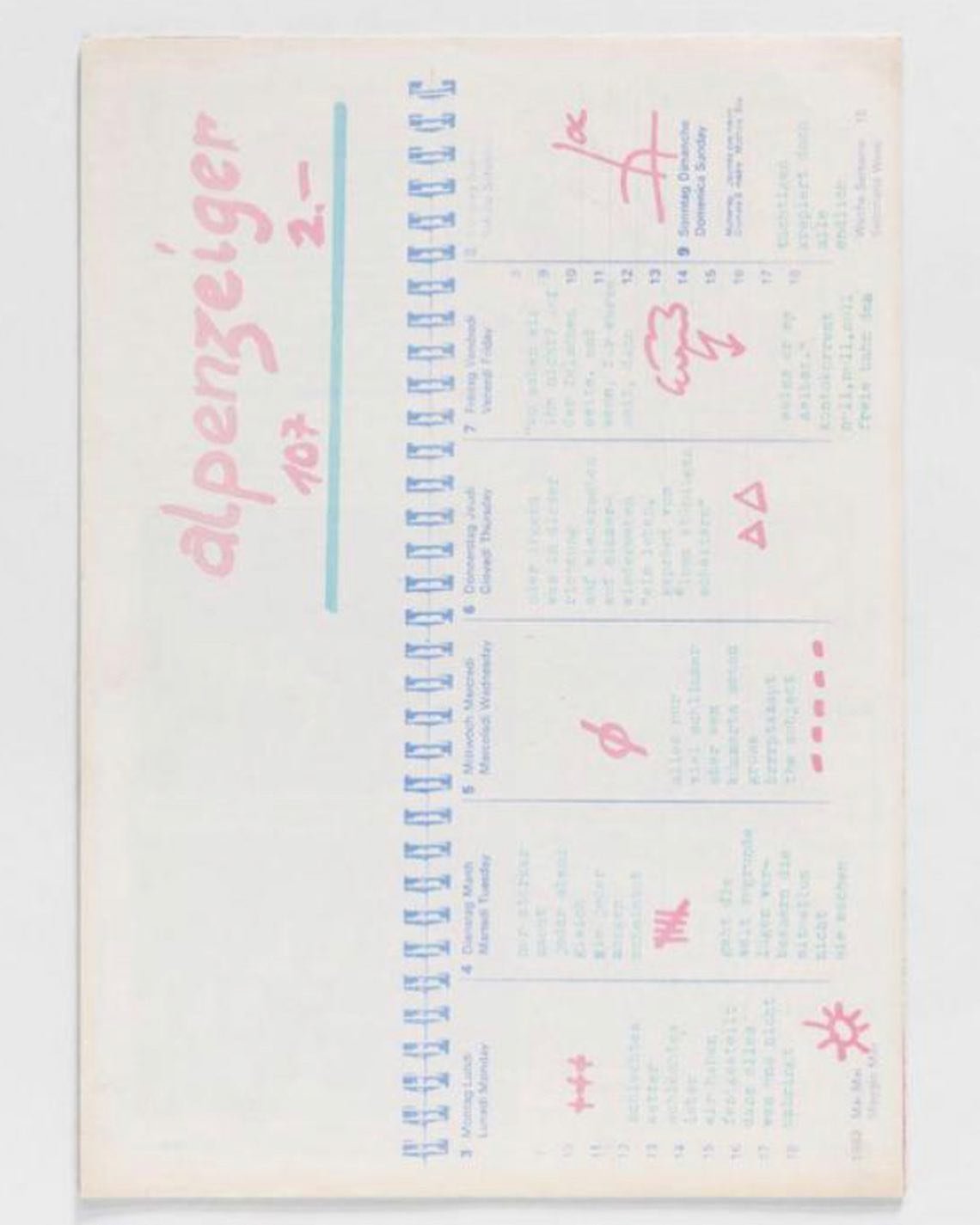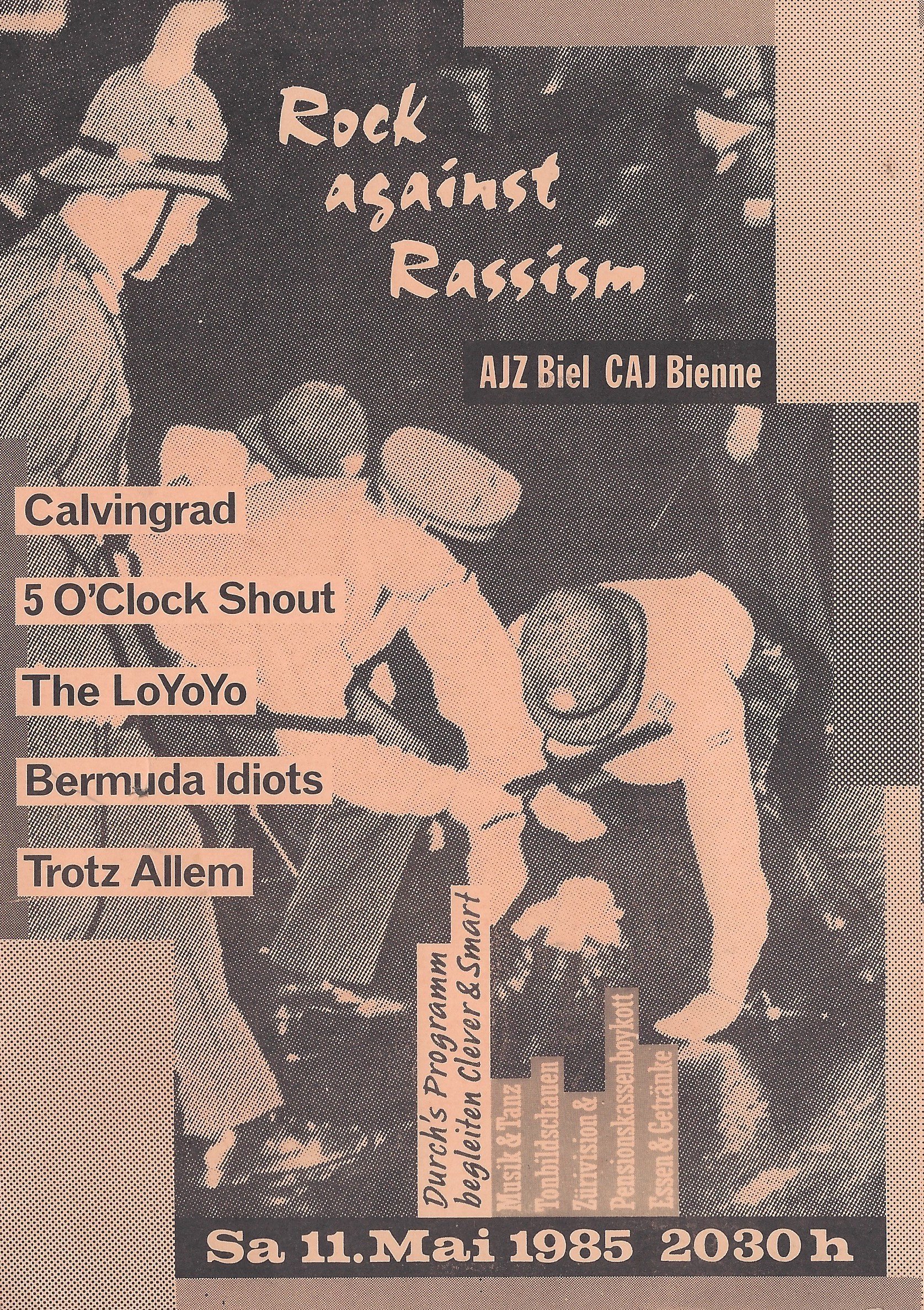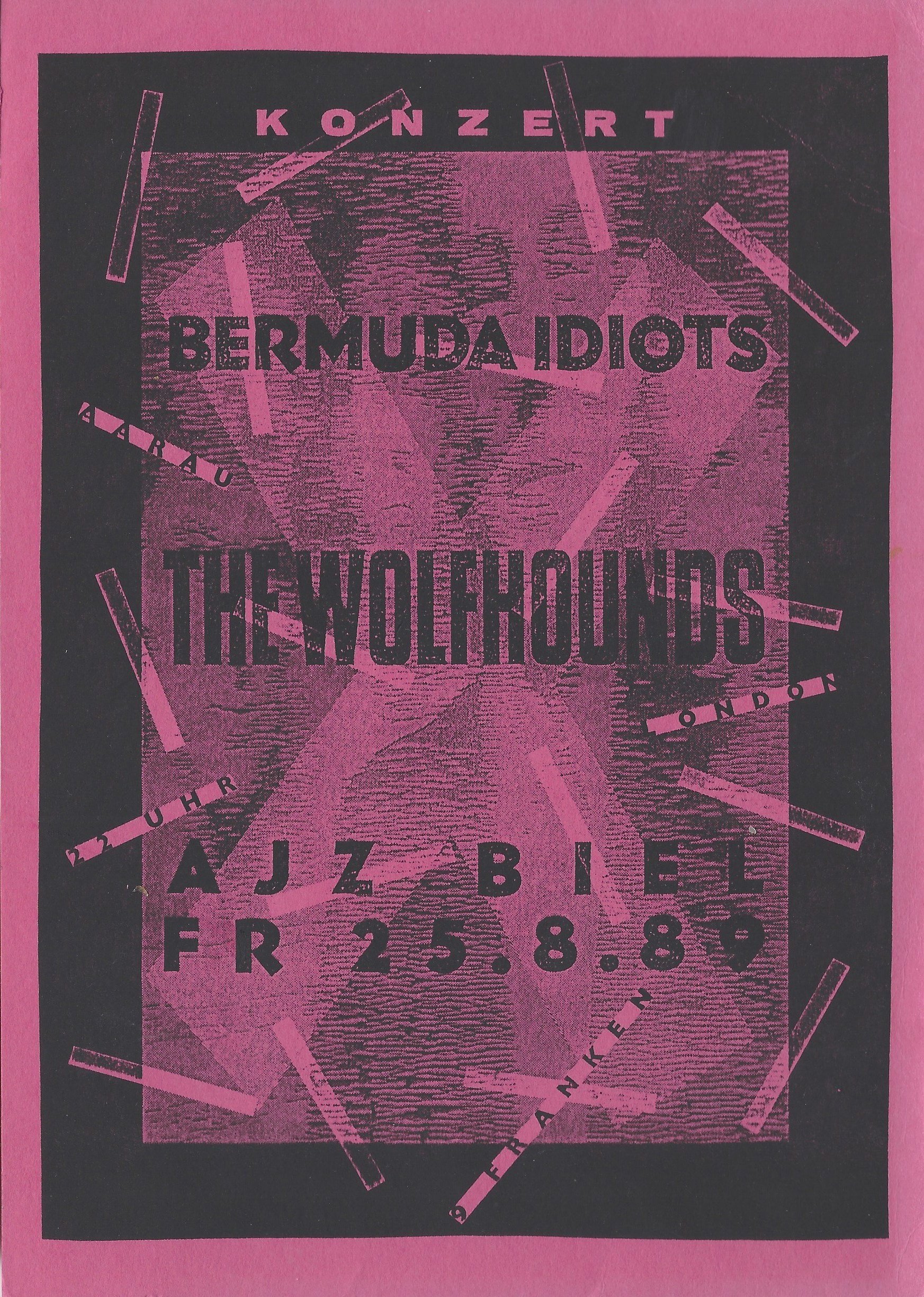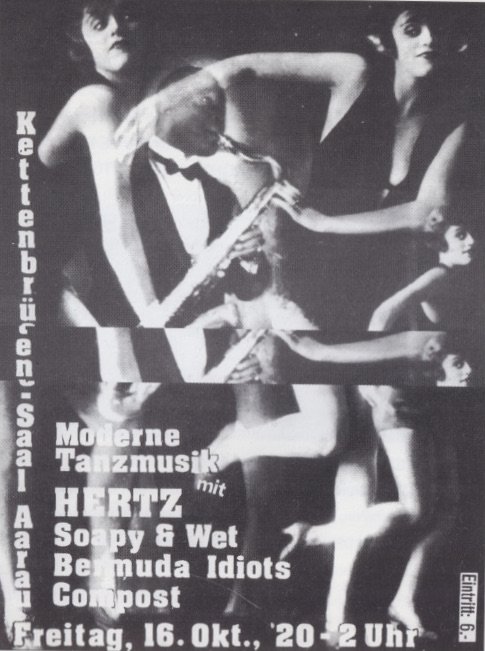Language as a tool for expression.
A chat with the Bermuda Idiots.
Playing in a band can be a full time job, whether playing with friends for amusement or to make it big, the average band lasts for about three years, give or take. There is the common theme that transition periods in life, such as age, can be a factor. Indeed, many things can change in daily routines and lifestyle within a decade. For some bands, it simply is not about duration or schedules, but rather about chemistry affecting creative differences. For others, it might be a financial endeavour that leads to its disbandment. There’s really no main factor, but rather a combination of issues that can lead to the demise for the creativity of an ensemble by like minded characters.
Such questions are perhaps better answered by this riddle;
What keeps a band together?
Simply put, things change. For the Bermuda Idiots however, embracing change was what made them stick around for so long. Every point mentioned above, this Aarau based band went against, and saw these problematic scenarios as not part of their ethos, but rather as a reason to keep on going forward. From the genesis and fall of this band, with continuous lineup changes and genres, the sixteen songs featured in this compilation have resulted in an amalgamation of new wave, punk, ska, surrounded by a psychedelic glow full of political disdain, nostalgic anecdotes and heartbreak poems. Bermuda Idiots: ALL WE WANTED is the story of a group of people, friends, lovers, that have spent for the most part of a decade being inspired and in awe of each other. Growing, learning and sharing creativity.
For an idea of the genesis and fall of a band, with continuous lineup changes and genres, it felt obvious to interview one of the longest lasting and founding members of the Bermuda Idiots.
Originally from Munich, Wolfgang grew up in the Canton of Aargau and resided in Switzerland throughout most of his life. A rebel by heart, Wolfgang was often affiliated with anarchist movements and leftist ideologies. So much so that he ran the magazine Der Alpenzeiger amongst other projects. Being an anarchist is not only an ideology but a way of life. He shared his lifestyle with other locals at communal housing, where he eventually met the rest of the band.
Although being fluent in writing, the creativity spark was strong enough to make him and the other members start picking up instruments. It was on a first come first served basis, where Wolfgang eventually ended on the drums. Every year, Wolfgang along with other collaborators would throw parties in support of their magazine. However, that year in 1980 was the beginning of something different.
“Every year we did a party for the Alpenzeiger and this year we wanted to do something special, a sort of joke if you will. We made the group with members from the shared flat, so my then girlfriend Petra became the lead singer, Jet was the guitar player, Sevi was the saxophonist and finally Wenzel the bassist. We all joined in the band since we lived together or were good friends. Living in such a big house meant that we had space to practice, so we held most of our rehearsals in the cellar. So then came the night and we played only one original, because that is only what we rehearsed. But the song was such a hit that we played it three times that night. I don’t remember what the song was (it was called ‘Mich schisst's aa’: “I’m bored, I’m pissed off”), but the success was so overwhelming that we suddenly got booked more. We needed a band name, but that night we were baptised by the audience. The saxophone player was wearing Bermuda shorts, and so the band name came from that. It was all humorous and loving though. So this gig in question was in December, and we had then two more booked until New Year’s Eve. But because of the time constraints in needing to build up a bigger repertoire, we started off by doing pretty simple cover songs. Covers of The Specials and other Ska songs, a version of the Beatles ‘Taxman’ or ‘The Track Of My Tears’ by Smokey Robinson is another one that comes to mind. We played fast and hard but I never saw us as punk. Maybe garage? The reason being that by then I was 28 and we were all approaching 30, so ‘too old’ for punk in that sense.”
-Wolfgang (Bölke) Bortlik.
The thing with the unknown and not doing things for either money or for fame is that you tend to go with the flow, which could partly explain why the band went on for so long. No plan in line, only passion and living in the moment, not worrying where the success of the songs will take you next, also added to the rawness and “uncaring attitude” of the Bermuda Idiots. So much for living fast and dying young. However they never saw themselves as being categorised in any specific style or movement, and the turn to the next decade meant that new genres through new technologies and independence from record labels meant for more creative expression and experimentation without worrying about financial pressure.
“So like I said, living in such a big house meant that it had its perks. The cellar was the practice room. The formation of the band pretty much came from drawing straws, and we had two new additional members between 1981 and 1982, Marlies Egger on the bass and Fritz who was the synth player. I never had any former training as a drummer. I mean everything we owned was second hand, even my drum kit. The same story applied to Marlies, who never played before yet was prolific at this instrument. Personally, I did not think I was a very good drummer, and I assume the feeling was shared with other members in regard to their own instrument. Except Jet, he was a great guitar player. But we created enough of a backbone structure to support each other that we all eventually got better through experience. In hindsight, it would have been interesting to know if we were really fitted to the instruments we assigned ourselves too. What I mean is that Marlies for example had the greatest voice I ever heard, but she couldn't/wouldn't act as the front woman because she was too nervous. So she only played bass but was really good at it and really became the soul of the band. She was the center for many of us, although we were all very eccentric. Sometimes we had internal conflicts in the bands, troubles and issues, because I was in love with Petra, the singer, but she did not feel the same way. But regardless, coming from a non-musical background, we had a lot of fun learning all together at the same pace and developing our styles all together. Back then, I would have never wanted to play with a professional musician, it was all about growing together. Of course, later on, I played with more professional musicians such as the guitar player of the band Krokodil from Zurich, and that was fine. But our amateurism with the Bermudas is what gave us our edge I believe. A hint of naivety yet consumed with a strong belief towards something loud, communal and powerful.
The thing is that, because we had so many changing members throughout the years meant that we had different influences and had to adapt with the equipment that each musician could perform with. It made sense therefore that since we started with a synth and saxophone player for instance, meant that we had a more new wave sound. And you know, things changed again with the band. Petra went to Mexico for a while so we replaced her with Judith playing bass and singing. She was actually the girlfriend of Jet, the guitar player. Since Fritz had left with his Korg-Synthie after he got married, we now had two bassists. I was still playing drums but also singing more in the band and we even changed the band name to WalkAbout for a while. The sound was synonymous in nature but it was still Bermuda Idiots at its core. During that period we wrote ‘Fruits of Paradise’. The song was recorded when Petra was away so that's why I sang in her place. When Petra came back we became the Bermuda Idiots again. She also changed to playing the organ but was still singing. Now there were more vocals in the band and it was interesting because for the first time, the Bermuda Idiots mainly consisted of women. New band members created new sources of conflict or debate, which had a wonderful effect on the music. This lineup lasted about a year.
Throughout the eighties, technology for recording became more accessible, but our sound always varied through the equipment at our disposal. Limitations can be frustrating but naturally induce creativity. I was never interested in technology, this part was taken over by Jet and Gogo. Jet bought some recording equipment in 1984, an eight track-machine, and Gogo, who lived in a farmhouse in the country, took it over at the end of the decade. So we recorded only on cassette as this was the most simple and charming way. We were then contacted by Hotcha, who ran the record label Calypso Now from Biel/Bienne. He copied around 300, maybe 500 cassettes.
In 1985 we did not have any more access to our cellar because we had to move due to gentrification projects from the town government. At first, we had a rehearsal room in the new house, where some people of our community moved to. Petra was already off to Zurich and I went to live in Rupperswil, near Aarau, in a large house in the country, where Barbara, the later Violinist lived. Because by then, I couldn’t afford the rent in the city. Jet and the other inhabitants bought a house in Aarau, were the rehearsal room was installed. Jet was the one who handled most of the technical [recording] stuff. But I find it interesting, even after all of these years, that although we were self-taught, the songs actually sound like they were somewhat professionally produced although it was quite a minimalist set up. All the reverb and most of the echo that you hear on the older songs are actually room sound reflections. They were nice happy accidents from recording in such big spaces!
When Petra came back we became the Bermuda Idiots again. She also changed to playing the organ but was still singing. Now there were more vocals in the band and it was interesting because for the first time, the Bermuda Idiots mainly consisted of women. New band members created new sources of conflict or debate, which had a wonderful effect on the music. This lineup lasted about a year. Later on, Judith was replaced by Barbara in 1989, our violinist, and with the upcoming 90s revival of 60s psychedelic folk meant that we headed more into the direction of ballads with cherubin-like choruses. By 1990, the final lineup slightly changed as I started doing more vocals instead of drumming. Irene was now in charge of the rhythm section. Gogo, a good friend of mine and a well known guitar player in the Aarau area, also joined, but only as a singer.”
-Wolfgang (Bölke) Bortlik.
Language exists to convey a people’s culture to the next generation, so it makes sense that each area is protective of its own, more so when it comes to its unique dialect. When the world loses a language, as it does every two weeks, we collectively lose the knowledge from past generations. Since language is a salient and important expression of cultural identity, without it is the loss of many aspects of the culture.
Years ago no-one wanted things that were traditionally Swiss. I guess you can blame Americanisation. When growing up, everything that was seen as cool on television programs or billboards was American, or at least spoken in English. So there was less incentive to be proud of your own culture. Growing up at the beginning of the domestication of the Internet also meant that English was a must, since I was more curious in seeing what was happening abroad as opposed to next door, so to speak. As a result of this, it seems that nowadays people are tired of everything being the same everywhere. It’s seen as hip and cool to go back to your roots and be more local than global. The constant search for differentialism and individualism has developed into an on growing attractiveness to the charm of the niche, rarity and exclusivity.
Language in music is a tool for expression. If you do not sing in your mother tongue, you run the risk of being more absorbed with the usage of that tool than the free expression of thoughts and ideas. Promoting your language by your musical work, even if unintended, can turn into a welcoming effect. To elaborate, language can be a unique way to see and describe the world.
This said, that is something I enjoy of the Bermuda Idiots. They sing in both languages, Swiss German and English, and albeit there are some slight typos and grammatical errors in English speaking songs, the listener can interpret it in a creative way that derives from the initial meaning of what was intended. Such charming mistakes can lead to another person’s own perception and understanding of the phrase, thus creating a new idea or area of investigation.
“Indeed that was always the effect of this. In the beginning of the eighties there was a great [cultural] opening in Switzerland with the arrival of punk and new wave. These music genres amongst others were very international. This opening towards the other countries, you started to know people in Germany like Dusseldorf or Hamburg. And the exchange of ideas through communication, whether through music and thus different languages meant that there were a lot more opportunities for showcasing well known artists in Switzerland that did not necessarily have access to international audiences. For example the band Kleenex was extremely influential in that regard and from this they became really popular in new territories like England. It wasn't a shame anymore to call oneself Swiss.
In the beginning we wrote some songs in our Swiss German dialect, but we weren't satisfied with the possibilities of this language. I mean, it's far easier to explain thoughts and acts, actions in English. Swiss German is a very nice language to write novels and texts, but not always for writing songs. Besides us, maybe in genres like cosmic rock from Dusseldorf, most people sang in German, but eventually switched to English. At the time, the music was not so much Swiss music for Swiss people, but Swiss music for international audiences, so it made sense to sing in English. I think English was also easier. It was kind of diplomatic or political in a way to find a middle ground for us all.
“I find that our political views are reflected in how we functioned as a band. It was not rehearsal, but more creative sessions through votes, which lead to our songs becoming 50% heartbreak, 25% political and 25% philosophical comment.”
I was writing lyrics before I was with the Bermuda Idiots. I wrote a lot of poetry, a lot of it bad I admit, and also wrote other lyrics for bands that I was friends with. Petra wrote quite a bit too. Back then (in the seventies) it was a bit different in regard to the popularity in singing in your mother’s tongue. You couldn't play rock music in Switzerland in the early seventies with Swiss German texts. It had to be in English, so I guess the familiarity of writing in a foreign language partly came from that. I mainly liked to write about political figures, heartbreak and mental health. You probably figured that out through songs like ‘Janos Kanar’ or ‘Stammheim Hotel’. Speaking of language, I have some regret naming one of our songs ‘Eskimo’. You can imagine that in the eighties, the word did not have the same negative connotation that it does today. The word was actually used as a metaphor, a picture for the cold and the loneliness, just like ‘piblokto’, also known as ‘Arctic Hysteria’.”
-Wolfgang (Bölke) Bortlik.
"Your question about me as a woman in a mainly male dominated industry made me think a lot. I have to say that I didn't feel much discrimination because the band was not mainstream and we were not part of the industry. We found a little niche where the usual male domination did not happen so much. Plus I was already engaged in women's liberation movements some years before. I organized a female disco night, for instance. Let me tell you a little story in the time we lived in this house in Aarau. I went to a self defense course for women on Wednesdays and when I came home I used to pratice with the boys what I had learned in the course. After a while nobody was around on Wednesday nights because they where afraid or annoyed by the moves I learned in the course.... I was a big rebel as an adolescent, therefore I developed a strong will to do want I wanted - against any kind of resistance. I think I wouldn't have tolerated male domination.”
-Petra Meyer.
“So that was pretty much it! After a hilarious gig in the Rote Fabrik in Zurich, where a mostly very young and stupid audience stood there like dead and only waited for the main act, the Jellyfish Kiss, we had decided as a band that it was enough.
Looking back, we went on with the band and had an overall great time. And it was a time where you start to know everybody in the scene. You had a lot of gigs and everybody in our surrounding was interested in music. And with that came a lot of younger bands also from Aarau that came with us to gigs. We hired a bus and went on tours all together from Biel to Schaffhausen, from Basel to Geneva. We must have played every venue imaginable in Switzerland during that time period. It was a very dynamic time. We were well liked and easy to book. Getting shows was never a problem because we did not ask much in return. We came with our own equipment and transport and since our song repertoire was so vast in style, we were fitting for most parties and concerts, sometimes as openers for UK bands. Or in the case of 1987 , we opened for The Creepers at Fri-Son in Fribourg. This gave us a lot of opportunities to play in some interesting venues, which ranged from decorated rooms, stocked houses, autonomous factories, city exchange programs and counter-commercial toilets… even so that in 1988 we were in the final of ‘The Swiss Rock-Contest’ by Radio DRS 3/Couleur 3 – Vernier-sur-Rock. At the time, it was not so important for us to build our portfolio and to become more ‘professional’ in that sense. We never did any promo photos or videos or anything of the sort. Now of course, that is one thing that I regret. Not having so much of an archive to show you. It is not to suggest that it is because we could have become bigger, but more so for the memories and treasures of the past since we covered so much ground at one point.
We never thought when we started that we would last 10 years. In our minds you know, it was one gig and maybe the next one and something like that and yet it kept going and maintained people’s interest in us. Of course, eventually we stopped. For me, it was because I was a father by the end. I still played occasionally in various local bands, sometimes cover groups, but even that eventually dissolved. I still kept in touch with the Bermudas though, some more closer than others, but our spirit remained unchanged although everything around us was changing constantly. Let alone the music around started to become unfamiliar with the arrival of techno and the rave scene. We felt too old by then so we stopped whilst keeping our heads high. I was really surprised that you contacted me to release some songs. We had fun and had a good run and felt that it was good to stop where we were. There were two very weak attempts to revive the Bermuda Idiots, but Marlies then died soon after from complications from Asthma so then everything stopped. Therefore the last “album” we made was a self release compilation for memory of Marlies as she died in 1997 from complications related to asthma. In total I think we had 150 songs worth of material that we made in 10 years. But as these things happen, the vast majority were lost or too damaged to reproduce, so what you hear here is the last of our legacy. In total, through Calypso Now, we put out about 5 cassettes officially, and did some songs for sampler compilations. I think we sold the most of our cassettes. Even I don’t have the complete set. Considering being an underground band in the eighties, pre Internet era, this was not too bad at all!
But again, I cannot stress enough that it wasn’t for fame or money. This is just us telling our story, like thousands of other bands probably lived through human history.”
-Wolfgang (Bölke) Bortlik.
The Bermuda Idiots are:
Wolfgang (Bölke) Bortlik
Petra Meyer
Marlies Egger
Fritz Haller
Konrad (Jet) Wittmer
Wenzel A. Haller
Judith Oehler
Barbara Hofer
Jürg (Gogo) Frei
Irene Vögeli


